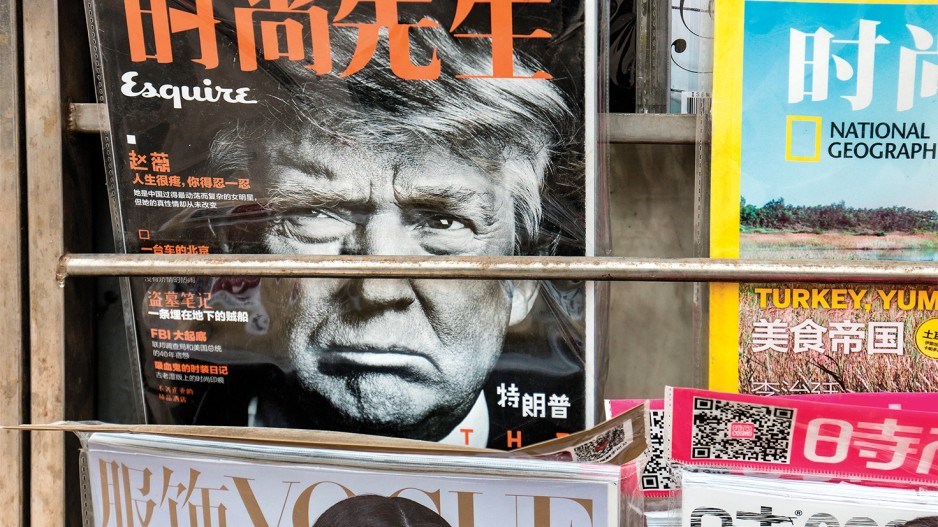Asians are rapidly realizing that they didn’t know what they’d got till it was gone.
The arrival in the White House of Donald Trump with his “America first” doctrine and his questionable interest in continuing the United States’ security guarantees, including the fostering of economic and civic development that has gone with it, is having an instant and profound effect in Asia.
Governments throughout the region are scurrying to rethink their national security and economic futures as they try to find strands of consistency in the confused messages coming from the White House.
On one hand, Trump’s disdain for multilateral trade agreements seems clear with his dumping of U.S. involvement in the 12-nation Trans-Pacific Partnership (TPP) and threats to tear up other commercial regimes, such as the North American Free Trade Agreement, if partner countries don’t give him major concessions.
On the other hand, Trump appears to have gone soft on China. His campaign threats to jump on Beijing’s currency manipulation and to stick massive tariffs on imported Chinese goods have disappeared.
Trump seems more concerned with courting the aid of Chinese President Xi Jinping in containing North Korea’s nuclear weapons program than in redressing the economic imbalance between China and the U.S. This is a faithful reflection of the supremacy of the Pentagon over Foggy Bottom in the Trump administration. The White House’s budget proposal calls for a 28% cut in money for the State Department and other diplomatic outreach such as foreign aid. Indeed, most of the senior policy and administrative posts in the State Department, including those dealing with Asia, remain unfilled.
This indicates that while Washington’s long-established security guarantees to Asian allies may stay in place, the accompanying diplomatic work will not. Asia’s many authoritarian regimes may not miss the pressure from Washington to boost political, social, administrative, judicial and marketplace reforms, but ordinary Asians undoubtedly will.
China is the immediate beneficiary of Trump’s pivot to parochialism as the countries of the Far East and Southeast Asia react to the gravitational pull of Beijing as the countervailing force of Washington recedes.
The Association of South East Asian Nations (ASEAN), the 10-country alliance that will be 50 years old in August, has always been too culturally, politically and economically disparate to respond firmly and decisively to regional upheavals. Beijing has already been deft at ensuring ASEAN mounts no serious pushback against China’s construction of artificial islands to bolster its spurious claims to ownership of most of the South China Sea. Even though those claims impinge on the territorial waters and economic zones of four ASEAN members and threaten others, the organization has never managed to speak with one voice on the issue.
Even those feeble complaints were silenced almost entirely at a recent ASEAN summit as those countries that have effectively been bought off by Beijing, especially Cambodia, Laos, the Philippines, Thailand and Malaysia, blocked any outrage at China’s island-building.
For small countries self-interest must rule, in economics just as much as in security. Trump’s abandonment of the TPP gives Asian countries little option but to embrace China-backed trade agreements and to grab for chunks of Beijing’s vast One Belt, One Road infrastructure project. This vision of President Xi sees all roads leading to Beijing, and all transportation corridors from Europe, the Middle East and Asia leading to China.
Trump’s pivot is sending a chill through the corridors of Washington’s Asian democracy allies. Taiwan is hunkering down and has never been so isolated in its efforts to maintain its independence in the face of China’s threats to invade.
Japan’s prime minister, Shinzo Abe, was the first leader to fly to see newly elected Trump last year. But Abe appears to be only half convinced that he can trust his new best friend. In recent months he has had many meetings with Russian President Vladimir Putin, and while the Russian occupation of four Japanese-claimed islands is high on the agenda, so is economic and diplomatic co-operation.
If Washington can’t be counted on to help Japan counterbalance Beijing’s growing power, perhaps Moscow can.
Jonathan Manthorpe ([email protected]) has been an international affairs columnist for four decades.




